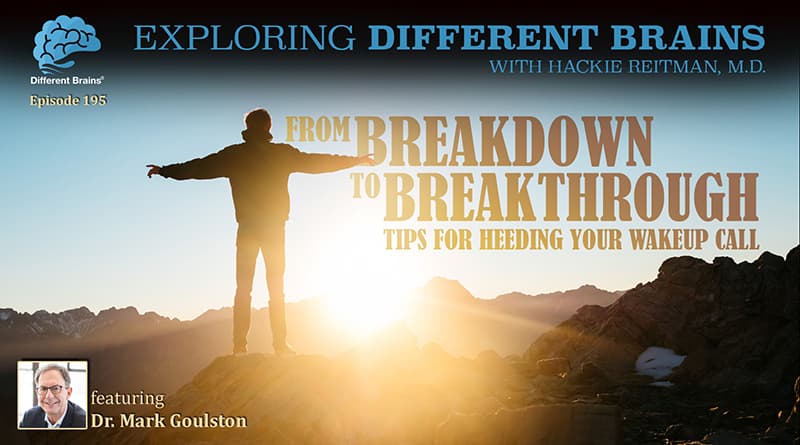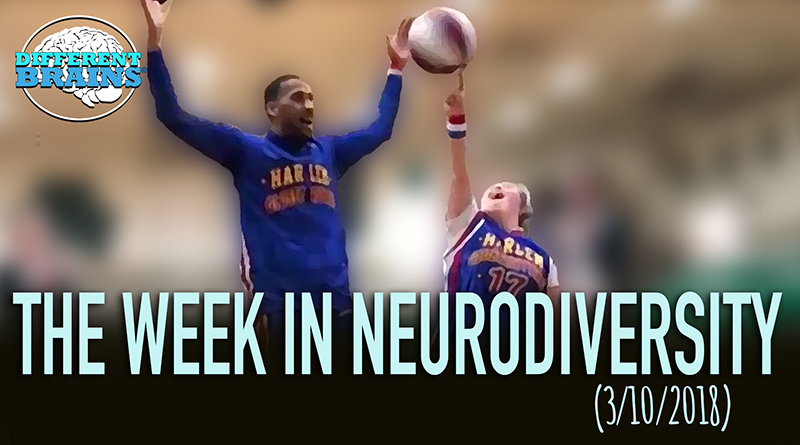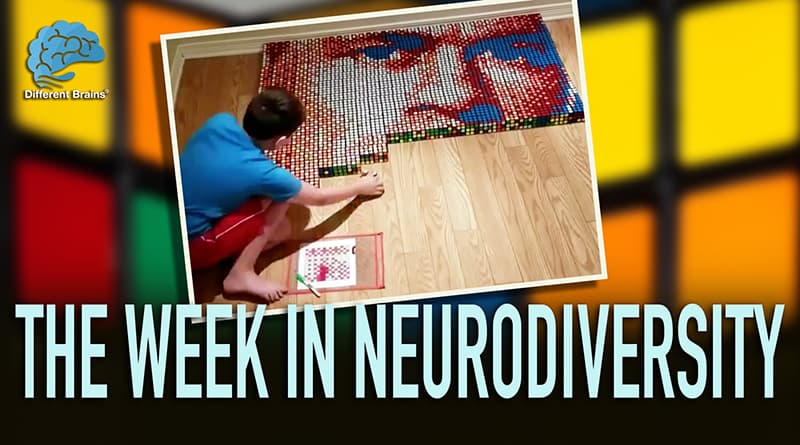Finding the Super Powers Within with Dr. April Lisbon | Episode 1: Bria Brown
(15 minutes) Dr. April J. Lisbon believes the differences in our brains can really be our super powers. In this episode, she speaks with self-advocate Bria Brown. Bria discusses her experiences with anxiety, depression and ADHD, and shares her perspectives and advice for anyone else learning how to use their super powers.
For more about Dr. Lisbon visit:
facebook.com/autismcoachstrategist
instagram.com/autismcoachstrategist
FULL TRANSCRIPTION
Welcoming Bria Brown
DR. APRIL LISBON (AL): Greetings everyone my name is Dr. April J Lisbon, and welcome to another amazing episode of Finding the Super Powers Within. Today’s guest is Bria Brown. Bria, thank you so much for joining the show today.
BRIA BROWN (BB): Thank you so much for having me actually too. I really appreciate the chance to do something like this.
AL: Awesome! So, Bria, in about one to two sentences, please tell us a little bit about who you are.
BB: Well my name is Bria Brown. I was born and raised in Baltimore, Maryland. I’m a 24-year-old college student. I’m turning 25 this year. I just graduated and now I’m actually going back to school for another major.
AL: Awesome! So, let’s go ahead and just jump in, because I’m one of those people who is so excited that I have my millennials and my Gen Z guests on my show. So Bria, tell us what is your superpower? At exactly when did you receive your diagnosis?
BB: So, it took me awhile. I feel like as a child it kind of got glossed over, but I believe around my first or second year of college I finally went to a therapist, and I was diagnosed with depression and generalized anxiety, as well as social anxiety, and, it took a long time to get to where I am diagnosis-wise, and it’s like I’m still working on figuring myself out because I’m actually supposed to be going to another psychiatrist to get tested for ADHD and ADD.
AL: Awesome! Well, thank you so much for sharing that. So, when you say that it took some time for the diagnosis to be given, were you the type of child that was the shy child, would may have like hid under the radar, as I call it, back in school so that, because you weren’t the troublemaker, and I put that in quotes. Is that why people didn’t have concerns related to your anxiety and depression?
BB: Not necessarily. I think I was a pretty “out there” child. I was very weird, I can’t deny that, but I feel like it was more considered under the pretense that I had an attitude, or I was being overly dramatic, or a crybaby, because I would like overreact to some situations, and it’s like I knew I was overreacting but that’s just how my body would like respond or how I would feel. So, I personally just feel like it wasn’t exactly like, and it’s not anybody’s fault that it wasn’t like discussed, but I feel like it was just people assuming I was just being a bratty child.
AL: And you know what, honestly you are talking about something that we discuss consistently in education. When it comes to girls, you know, all the crying and the tears is just because they are, like you said, overly dramatic. So sometimes it’s very difficult to tease out whether or not this is just pre-teen/teen girl issues or is there some other type of mental illness that’s going on. I’m also thankful that you did acknowledge that this was no one’s fault, it was just a part of who you were, and it was a part of your superpower. As you think through this process, as you are now 24, can you share with our listening and our viewing audiences some of the trials and triumphs that you experienced since you learned about your diagnosis of both generalized anxiety, social anxiety, as well as depression.
BB: Yea, well I feel like it’s things that everybody goes through, but I feel like I feel things so much more intensely and it actually has really altered the way I interact with people, and like just how I interact like with situations day by day like, I have a hard time like finding a job with like the public because I used to have a job at a bowling alley and every day at the same time I could always tell when I was about to have a panic attack. I would spend like an hour of my shift in the bathroom like sobbing and breaking down. So, I just you know, find it easier for me to work in family businesses or like just private owned businesses where I feel like I’m a little more, not secluded, but like I’m working on a level that I feel like I can manage myself, but then like it’s also like I struggle with maintaining friendships sometimes, and like talking to people in general, and just like meeting people. I always feel like it’s going to turn out pretty badly, so I get really like scared to interact with people.
AL: Wow, and this is something that I really want people to understand and realize, that people who struggle with significant anxiety and depression issues, it is very difficult for them to engage with people. It’s not that they don’t want to. It’s not bad you know, like we explain that they’re trying to be bratty or they’re just overly emotional, it’s because, I describe it as it just really hurts. You know if you have this desire to reach out and to connect with people but just the thought of the process… I describe it as, what’s the best way I could think about it – walking on pins!
BB: Yes, that’s exactly what it is!
AL: You know, it’s this process, just the thought of it, just the pain of it and actually sends you into a panic attack. So, my next question is, when it comes to your younger self and as you think about where you are today what would you tell your younger self about this journey and how you would like to support your younger self?
BB: I tell my younger self that it’s okay to speak up for yourself and that there’s nothing wrong with that because even now, I have it where I’ll hold a lot in and I’ll just either brush it to the side or like put it off completely because I feel like it’s not as important as anything else somebody else is going through. So, I mean I’m still working on that, but like I would tell my younger self that it’s okay to you know, ask for help, it’s okay to talk about how you feel, it’s okay to feel what you feel.
AL: I love it. I love it you said that it is okay to feel what you feel, because sometimes in our society which we make people feel like that is not okay to go to the hurt, it’s not okay to go to the pain, as you know, I’ve heard people say, “Oh just suck it up!” you know, and that they can be stuck up you know. If you’re feeling it and I want people to listen to this, it is okay to express yourself. Now as you think through some more things, what would you tell parents and advocates of children or young adults who may be struggling with depression or anxiety related issues?
BB: I would definitely tell like parents, adults, teachers, everybody… I would tell them to like be much more open-minded, like don’t jump to the conclusion that somebody’s in the wrong, don’t jump to the conclusion that somebody’s being bratty, or just has an attitude, like don’t jump to that conclusion because a lot of the times that’s where it starts to get swept under the rug, even by that person that’s experiencing this because you feel like “Oh okay maybe I am being a brat, maybe I am being selfish, so I should just not say anything about it” or like, “I shouldn’t just bring it up, I’ll just bottle it in and try not to be a burden to anybody”. And I just, I want like older people to realize that it’s not as easy to just get over it as a lot of people think it is.
AL: Wow, this is powerful. I can see in the emotions working through you as you talk through this process. So, I celebrate you and I thank you for your courage right now, because I know this is challenging for you. I know that this could potentially put you into a panic attack, so I thank you for the courage that you are showing today to our listening and to our viewing audience.
BB: I really appreciate it. It’s because sometimes I feel like I can’t talk about certain feelings like I have to like put it aside and just act like I don’t feel it because somebody else is going through something. So, it’s really nice to be able to actually open up about how I feel and like what it’s like working with things like this.
AL: And I’m telling you, I can see so many kids saying “Yes! Yes! She understands me!”, as well as other young adults saying “Oh my gosh thank goodness someone is willing to talk about it because I was too afraid to talk about it”, because like you described as you said you know, all too often you know it’s almost like we try to measure, is my pain, are my feelings are more significant than someone else’s and as you heard today here from Bria, your feelings, your emotions, your hurt is no different than someone else’s. So, it’s so important and so vital that you speak up. So, my next question, before we get ready to start wrapping things up with this. Where do you see yourself one year from today after today’s interview?
BB: Okay, like a year from now would be, what is that, 2021? In a year I definitely see myself well into college. I’m going to UMBC. I’m majoring in Japanese language and culture studies. So, I definitely see myself being well into that. I’d like to be able to have started my own comic book, or just planning at least and I definitely don’t want to live in apartment anymore. I can see myself doing, I guess, bigger things for myself and just you know I want to continue to let people like me know that even if you’re going through things like depression and anxiety or ADHD or anything like that, you will get to the other side of it, like there’s always rain before a rainbow.
AL: I love it. I love it. So once again ladies and gentlemen, I am so honored to have Bria Brown on the show today. Bria is an amazing young woman whose super powers includes depression, generalized anxiety disorder, social anxiety disorder, and as you heard earlier in the show, she’s also looking to be assessed to determine if she may have ADHD, either inattentive type, or that hyperactive-impulsive, or a combination of them all. So, Bria, and I hope this is not too much to ask. What is one thing that you would want to leave our listening audience with before we actually closed today show?
BB: I guess I can just say you know always be your authentic self. Put yourself in a place where you know you’ll succeed regardless of – if you feel like it’s going to be in somebody else’s way because you know you deserve to be able to get the help that you need. You deserve to be able to succeed as well. So just always remember that it’s okay to put yourself first and that you know, it’s just it’s all right to do that, and just you know be the you that your younger self wanted to look up to.
AL: Wow, that’s inspiring! So once again ladies and gentlemen this is another episode of Finding the Super Powers Within. I am your host Dr. April J Lisbon. Once again Bria, thank you so much for joining the show!
BB: Thank you!





